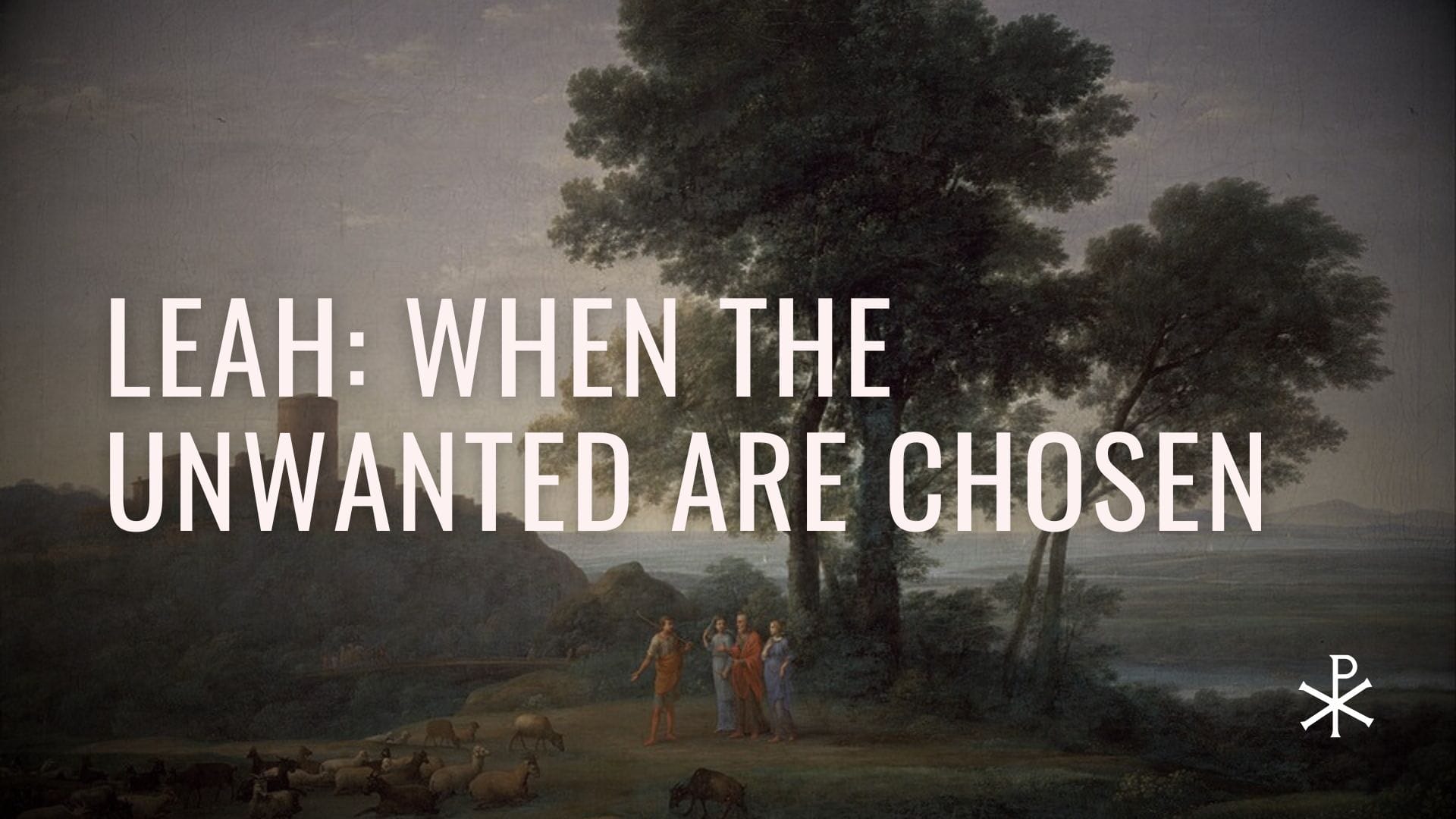Redeemed Failures, Day 24: Leah – When the Unwanted Are Chosen
Leah’s story shows how God sees and loves the overlooked, turning the “unwanted” into the chosen line through which Christ would come.

Genesis 29:15–35; Genesis 49:8–10; Matthew 1:2–3
Genesis introduces Leah with painful contrast: “Leah’s eyes were weak, but Rachel was beautiful in form and appearance. Jacob loved Rachel” (Gen. 29:17–18). Her younger sister received Jacob’s affection; Leah was left in the shadows. Through Laban’s deception, Leah entered marriage not by choice or love but by trickery. The morning after is captured with devastating simplicity: “And behold, it was Leah” (Gen. 29:25). For Jacob it was betrayal, but for Leah it was the confirmation of her deepest fear: that she was unloved from the very start.
Tim Keller once described her as “the girl nobody wanted.” That phrase captures the ache of her story. Rachel had Jacob’s love. Jacob had the covenant blessing. Leah had neither. In the world’s eyes, she was the failure, the unloved one.
The God Who Sees the Unseen
But God’s eyes are not the world’s eyes. “When the Lord saw that Leah was hated, he opened her womb” (29:31). Each child she bore became both a window into her longing and a testimony to God’s care. With Reuben she hoped, “Now my husband will love me.” With Simeon she said, “The Lord has heard that I am hated.” With Levi she longed, “Now my husband will be attached to me.”
Her children did not erase her pain or secure Jacob’s affection, but they bore witness to a deeper reality: God Himself had seen and heard her affliction. With her fourth son, Judah, Leah’s perspective shifted: “This time I will praise the Lord”(29:35). For the first time, she turned from Jacob’s rejection to the Lord’s steadfast love.
God’s Strange Pattern of Grace
Leah’s story reveals a striking pattern. God exalts the lowly and works through the overlooked. Jacob gave his love to Rachel, but God chose Leah’s son Judah to carry forward the line of promise. On Jacob’s deathbed, it was Judah who received the words of kingship: “The scepter shall not depart from Judah, nor the ruler’s staff from between his feet”(Gen. 49:10). And in Matthew’s genealogy, Leah’s name appears quietly but decisively by implication: “Jacob the father of Judah and his brothers” (Matt. 1:2). From Leah’s line came David, and from David, Christ Himself.
This is the gospel’s paradox. The Messiah came not through the beautiful, the favored, or the wanted, but through the weak-eyed girl cruelly left in the shadows. The One who was Himself “despised and rejected by men” (Isa. 53:3) came through the line of the unloved, so that those rejected by the world might be welcomed by God.
An Encouragement for the Overlooked
Leah speaks tenderly to all who have felt second-best. To those who carry the sting of rejection or obscurity, her story whispers that God sees. He does not measure worth by beauty, charm, or human approval. He delights to lift the head of the overlooked and to weave their stories into His great purposes.
In Christ, the unwanted are wanted, the unloved are loved, and the forgotten are remembered. Leah’s life assures us that the God who saw her still sees, and that the love we long for but cannot secure from others is freely given in Him.
Enjoy all 31 devotionals in the Redeemed Failures series here —stories of grace, second chances, and the God who still restores.
